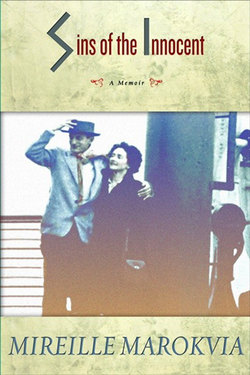Читать книгу Sins of the Innocent - Mireille Marokvia - Страница 20
На сайте Литреса книга снята с продажи.
XV
ОглавлениеOn May 10, Germany invaded neutral, small, helpless Holland, Belgium, and Luxembourg.
Sonder Meldungs (special reports), preceded by a phrase of glorious music, followed one another, every one tightening the clamp around our hearts. We all knew that France’s turn was next.
Abel could only share my anguish.
Christine, bitterly triumphant, had begun to pack up.
“They want it, they will get it,” she said. “This city will be destroyed.”
One month later, on June 14, the German army was clattering down the Champs Élysées.
No one had anticipated such a swift victory over France, the victorious least of all.
Younger brother was deeply disappointed in French men. “I had thought they were better fighters,” he told me reproachfully. Over the years, many German men, upon learning I was French, imparted the same complaint to me.
Christine was surprised, she said, but she went on packing.
As for me, the defeatist, I had agonized for eight months over the war that we had seen coming and the defeat that would follow. Germany’s astonishingly fast triumph came as a relief. For the moment at least. My worst nightmares had been swept away: neither Paris nor Chartres’s cathedral nor my grandmother’s thatched roof had gone up in flames. I was numbed, and, deep down, thankful.
For a while, I did not know that the Blitzkrieg had sent hordes of terrified refugees and retreating soldiers down the southward roads right through the area where my whole family lived. By the time I learned about it, newspapers were already picturing German soldiers as good Samaritans distributing food to French refugees and filling up their car tanks with gasoline so that they could drive back home.
Most Germans I met at the time hid from me their satisfaction at the triumph of their country over mine. A few offered sympathy. Christine’s brother-in-law, a poet whom I had met twice and who was then a soldier, wrote to me that he had wept when his country’s army had paraded down the Champs Élysées. I kept this letter, would burn it only when expecting the Gestapo to search my house, three years later.
Every day, through the fearful weeks, the lawyer’s housekeeper put a cup of excellent coffee—coffee was already rationed—and pastries in front of my door, rang my doorbell, and ran before I could talk to her.
In July, there were rumors that the invasion of England was now imminent.
Weeks passed.
Then it was announced that since England stubbornly, foolishly refused to accept the peace that Germany had generously and repeatedly offered, Goering with his formidable Luftwaffe would teach her a lesson.
Sonder Meldungs resumed. Puny British airplanes fell from the sky by the hundreds, and, we were told, practically none of the powerful German ones went down.
After the total destruction of Coventry, a new German word was coined: Coventryzieren.
On August 25, British planes bombarded Berlin for the first time. Minimized, the event could not be denied.
Well-informed people had explained again and again that no enemy airplane could fly undetected over the ironclad German borders. Suddenly—a revelation—not only could enemy airplanes fly over German borders, they could fly unhindered over hundreds of kilometers of German territory! And not only one plane, many planes, big, heavy planes, bombers.
Germany was vulnerable after all.
“What did I tell you?” Christine asked. She went on packing. She alone was moving to the country house. Her husband would stay in town with some friends.
She offered to take me along.
“No, I could not leave Abel alone,” I said.
“You’ll join me someday,” she predicted.
One beautiful morning, in early September, I think—the leaves on the trees were still green—I happened to be downtown when some units of the victorious army returning from France paraded down Main Street.
Tanks, guns, boots, songs—one sinister entity: the death machine that had trampled down my country.
The solace of tears was not for me that day. My heart had hardened. Their hour shall come, something in me said.
Strange, that at such a moment I should find hope. Or was Christine’s bitter faith contagious?
